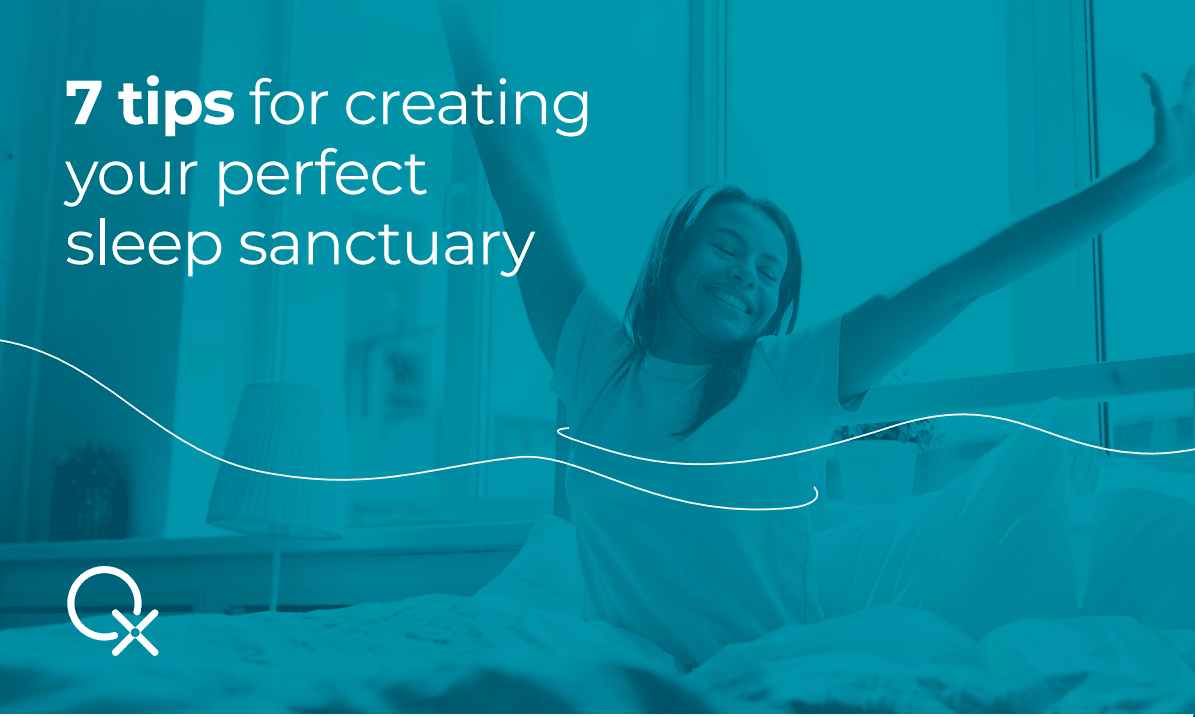
Transforming your bedroom into a peaceful oasis is a powerful strategy for enhancing the quality of your sleep. Read on to discover seven easy yet scientifically proven tips for creating your very own sleep sanctuary.
A clutter-free environment is not just visually appealing; it plays a pivotal role in calming the mind. Beyond aesthetics, reducing clutter minimizes distractions, allowing you to unwind more easily. Biofeedback techniques can complement decluttering efforts by helping to manage stress.
Choose relaxing hues for your bedroom. The selection of bedroom colors extends beyond aesthetics; it affects your psychological state. Soft blues, muted greens and gentle earth tones all create a peaceful vibe for sleep. Research into brainwave patterns reveals that exposure to these colors can influence brain activity, potentially aiding in the relaxation process.
It is important to avoid heavy meals, caffeine, and alcohol before bedtime. Alcohol, being a strong inhibitor, usually makes it easier to fall asleep, but it has a paradoxical awakening effect during the night. Moreover, while regular exercise has a beneficial effect on sleep, if you do more intense, cardio-type forms of exercise less than an hour before bedtime, falling asleep can become more difficult.
Bright light at night messes with your circadian rhythm, the body’s internal clock that regulates sleepiness and wakefulness. Especially the blue light coming from devices suppresses the production of melatonin – the hormone that tells the body it’s time to wind down. So, try banning electronic devices from your bedroom at least an hour before bedtime. Instead, treat yourself to a calming bedtime routine, like reading, doing stretches or other relaxation techniques.
Aromatherapy can be a powerful tool for relaxation, as smell is intricately linked to the brain’s stress response. Essential oils like lavender or chamomile are particularly known for their calming properties. By simply putting a few drops on your pillow, you’re all set for the night. You can also apply the oil on the soles of your feet so your skin can absorb them, and then put on comfy socks for maximum relaxation.
Playing gentle sounds like soft music, nature noises or white noise can drown out disturbances, promoting your restful night’s sleep. Biofeedback can investigate how different auditory stimuli modulate brainwave patterns, guiding the selection of sounds tailored to your brain’s individual preferences.
Finally, one of the most important and most effective aspects of sleep hygiene is going to bed and getting up at the same time every day. While possible challenging at times, it is worth the effort as it establishes a daily rhythm for the nervous system that regulates the sleep-wake cycle. It explains why people with regular bedtimes find it easier to fall asleep and feel more rested in the morning. Making 10:30 PM your regular bedtime is a healthy target as it aligns with the body’s natural circadian rhythm and will allow for sufficient restorative sleep.
Sleep experts argue that getting at least seven hours of sleep each night is essential. Yet a staggering 35% of Americans sleep less on a regular basis.
+1 (989) 681-1063
+1 (856) 322-8589